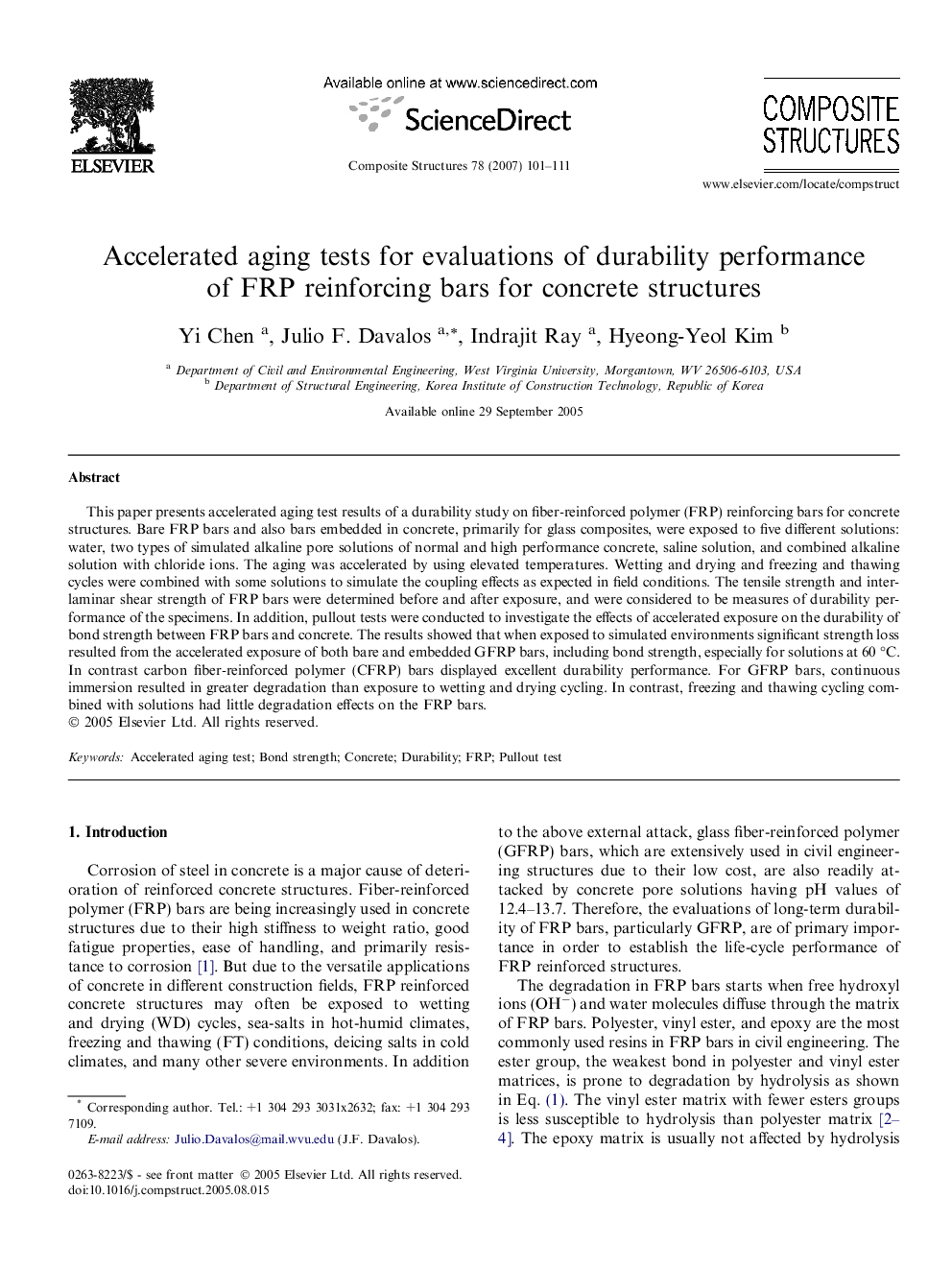| Article ID | Journal | Published Year | Pages | File Type |
|---|---|---|---|---|
| 254136 | Composite Structures | 2007 | 11 Pages |
This paper presents accelerated aging test results of a durability study on fiber-reinforced polymer (FRP) reinforcing bars for concrete structures. Bare FRP bars and also bars embedded in concrete, primarily for glass composites, were exposed to five different solutions: water, two types of simulated alkaline pore solutions of normal and high performance concrete, saline solution, and combined alkaline solution with chloride ions. The aging was accelerated by using elevated temperatures. Wetting and drying and freezing and thawing cycles were combined with some solutions to simulate the coupling effects as expected in field conditions. The tensile strength and interlaminar shear strength of FRP bars were determined before and after exposure, and were considered to be measures of durability performance of the specimens. In addition, pullout tests were conducted to investigate the effects of accelerated exposure on the durability of bond strength between FRP bars and concrete. The results showed that when exposed to simulated environments significant strength loss resulted from the accelerated exposure of both bare and embedded GFRP bars, including bond strength, especially for solutions at 60 °C. In contrast carbon fiber-reinforced polymer (CFRP) bars displayed excellent durability performance. For GFRP bars, continuous immersion resulted in greater degradation than exposure to wetting and drying cycling. In contrast, freezing and thawing cycling combined with solutions had little degradation effects on the FRP bars.
